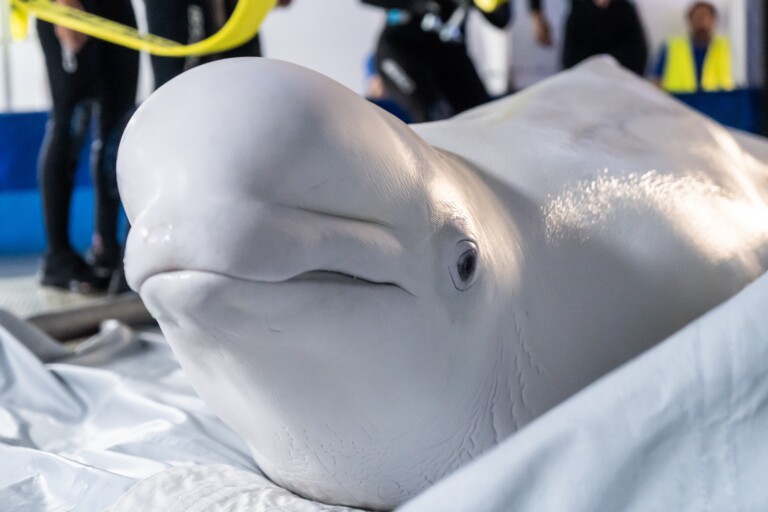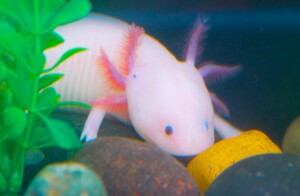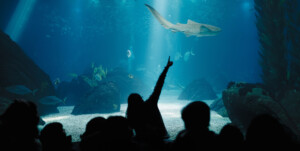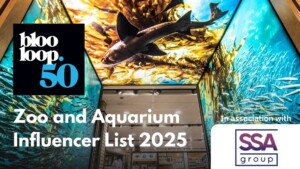Two beluga whales have been rescued from the Nemo Dolphinarium in Kharkiv, Ukraine and evacuated to Spain.
Spain’s Oceanografic de Valencia, Europe‘s largest aquarium, worked with US-based Georgia Aquarium and SeaWorld on the rescue of 15-year-old male beluga Plombir and 14-year-old female beluga Miranda.
A press release from Georgia Aquarium says the war-torn city of Kharkiv faces “increasing threat from artillery fire, which has intensified in recent weeks, with bombs dropping within a few hundred meters of the aquarium”.
The complex rescue operation took place last week, with Plombir and Miranda arriving in Valencia in “delicate health” on the evening of 18 June, Georgia Aquarium said.
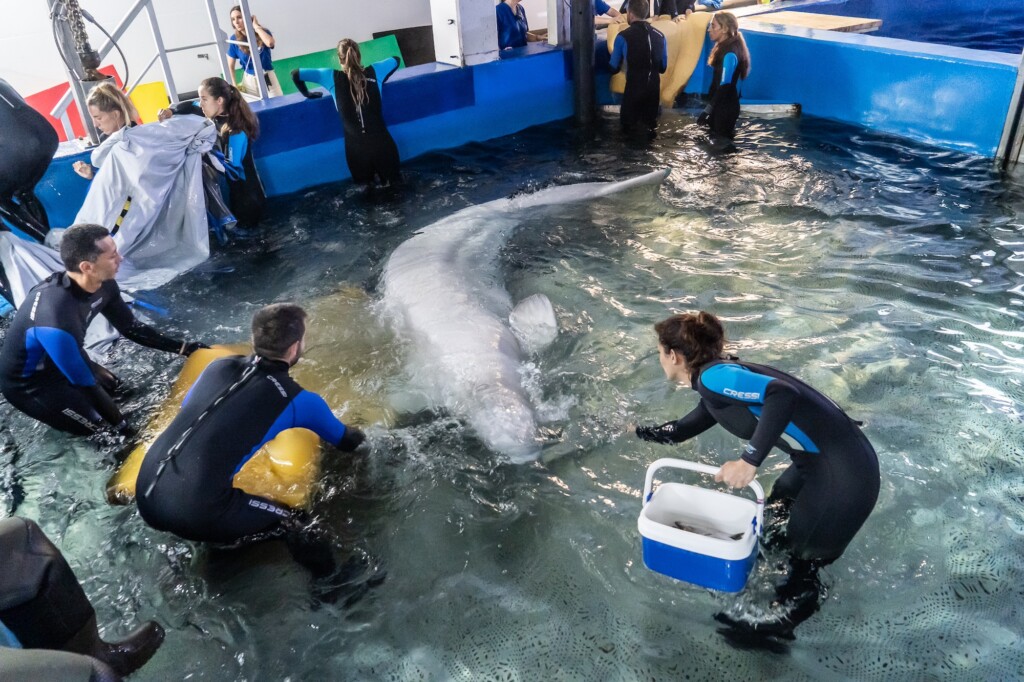
Their evacuation included a dangerous 12-hour drive from Kharkiv to Odesa, followed by a border crossing to Chisinau, Moldova. From here, the beluga whales were flown to Valencia.
“The war has caused food, energy and medicine shortages, reducing access to other basic necessities for animal care as well as technical supplies necessary for the logistics of such a sensitive rescue,” said Daniel Garcia-Párraga, director of zoological operations at Oceanografic.
“The belugas have a suboptimal body condition to undertake this type of trip, but if they had continued in Kharkiv, their chances of survival would have been very slim.”
Since the war started in 2022, Oceanografic has been evacuating animals including seals, sea lions and dolphins, but moving belugas is a very complex operation due to their size and needs.
Belugas evacuated to Spanish aquarium
“The complexities of this evacuation were immense, and we have been working for weeks to prepare for it,” said Dennis Christen, senior director of animal wellbeing and behaviour at Georgia Aquarium.
Keith Yip, animal care specialist at SeaWorld, said: “The belugas’ health and safety was our top priority, and these were challenging conditions, including rough roads, rising temperatures and the inherent risks of being in an active war zone.”
At Oceanografic, the belugas are “being cared for in separate areas that are not accessible or viewable by the public while they undergo recovery and acclimation”, said Garcia.
Plombir and Miranda are with a specialised team of medical, nutritional and behavioural experts at Oceanografic, and two Ukrainian caregivers are staying with them for the first couple weeks to help with their transition.
